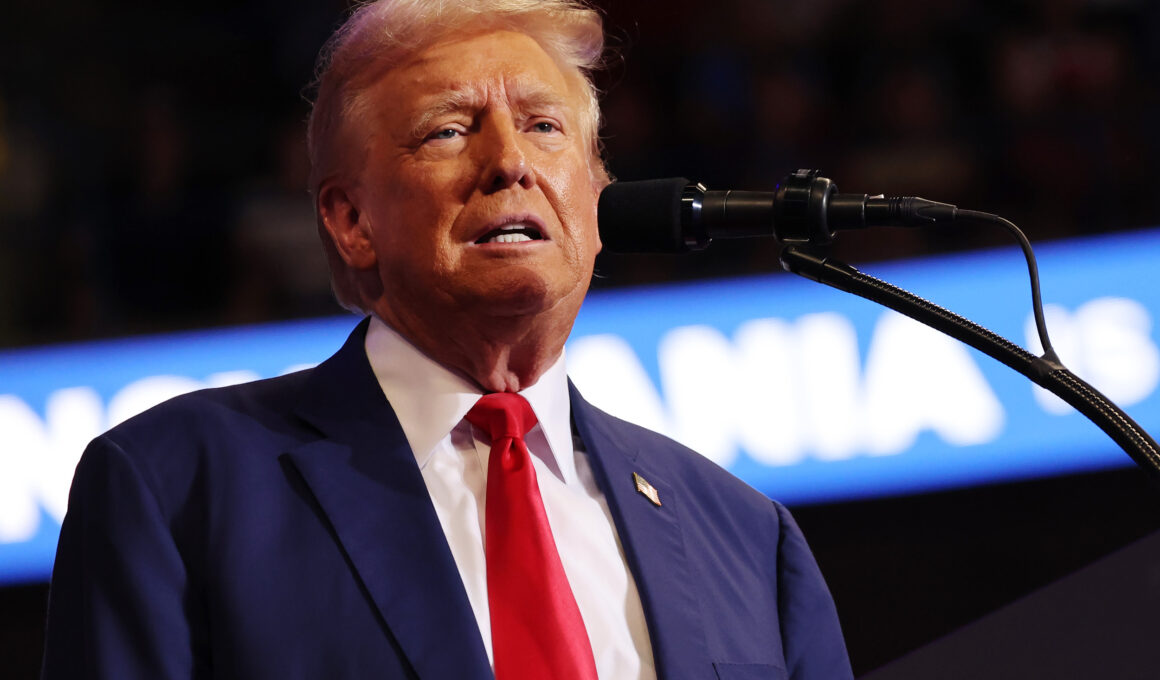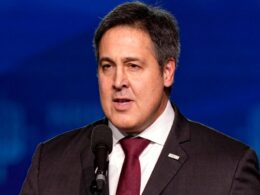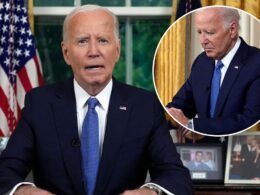Billionaire and Shark Tank star Mark Cuban raised a question on social media on Saturday about former President Donald Trump‘s remark on tariffs that he made at a campaign rally.
Trump, the Republican presidential nominee, spoke about his economic policies at a rally in Wilkes-Barre, Pennsylvania, on Saturday. The economy has become a key issue for voters as Trump and Vice President Kamala Harris, the presumptive Democratic nominee, aim to address the issue. Trump, who spoke about his economic proposals at a Wednesday rally in North Carolina, said he would expand his stance on tariffs on foreign countries.
“We are going to have 10 percent to 20 percent tariffs on foreign countries that have been ripping us off for years,” he said at Wednesday’s rally. “We are gonna charge them 10 percent to 20 percent to come in and take advantage of our country because that is what they have been doing.”
However, economists have warned against widespread tariffs, a type of tax that a country charges on imported goods from another country, as it would cause prices to rise for American consumers and hurt U.S. businesses while likely triggering retaliatory tariffs.
Doubling down on this policy at Saturday’s rally and seemingly addressing the criticism surrounding the policy, Trump said, “A tariff is a tax on a foreign country…A lot of people like to say it’s a tax on us. No…it is a tax on a foreign country. It’s a tax on a country that is ripping us off and stealing our jobs. It’s a tax that doesn’t affect our country.”
Cuban, a frequent critic of the former president, shared his thoughts on Trump’s proposed tariffs on X, formerly Twitter.
“Any importers want to explain how they deal with tariffs on say food or agricultural products?” he asked.
Newsweek has reached out to Trump’s campaign via email for comment on Sunday morning.
According to the Council on Foreign Relations (CFR), an independent, nonpartisan think tank on foreign policy, tariffs, a tax imposed on foreign-made goods, have been used by many countries and have been used to protect domestic industries, such as agriculture and renewable energy, as well as to “retaliate against other states’ unfair trade practices.”
The CFR notes that importers pay tariffs to their home government, “but most economists find that the bulk of tariff costs are passed on to consumers.”
“Critics say poor Americans are hit the hardest, and recent research has found that U.S. consumers have indeed ‘borne the brunt’ of the tariffs on Chinese goods through higher prices,” the CFR said on its website.
Matilde Bombardini, an associate professor of business and public policy at the University of California, Berkeley, warned Trump’s 10 to 20 percent tariffs would raise prices for American consumers and companies.
“We have a good sense about the economic impact of these potential tariffs, based on the effects of the (still-in-place) tariffs that were levied on imports from China during the Trump administration,” she previously told Newsweek. “Several pieces of academic research have shown that these tariffs have been primarily been paid by U.S. consumers and firms importing intermediate inputs, with small effects on U.S. employment.”
She added: “What we have seen is that tariffs on China have led to several producers relocating to Vietnam and Thailand. So, we can expect that further tariffs would impact prices paid by consumers and firms, with unclear benefits for U.S. workers.”
This is not the first time Trump has said foreign countries have been unfairly taking advantage of the U.S. when it comes to trade.
During his first term in office, Trump imposed a range of tariffs on foreign powers. In 2018, he put tariffs of 25 percent on steel and 10 percent on aluminum for almost all countries excluding Canada and Mexico. That year, he also announced tariffs of 20 percent and 50 percent on imported residential washing machines and an initial 30 percent on solar panel components.
Meanwhile, Cuban previously shared his thoughts on Harris’ economic proposals in a series of X posts on Friday, praising her as a “pro-business candidate.”
Harris introduced several proposals aimed at bringing down the cost of groceries, the housing market and other essential goods during a rally in North Carolina on Friday. Her plan includes tax cuts, a federal ban on price gouging by food producers and offering down payment assistance for first-time homebuyers who qualify. As the Associated Press reported, the policies are largely built off the Biden administration’s priorities.
“As president, I will take on the high costs that matter most to most Americans, like the cost of food,” Harris told supporters Friday. “We all know that prices went up during the pandemic when the supply chains shut down and failed. But our supply chains have improved and prices are still too high.”








